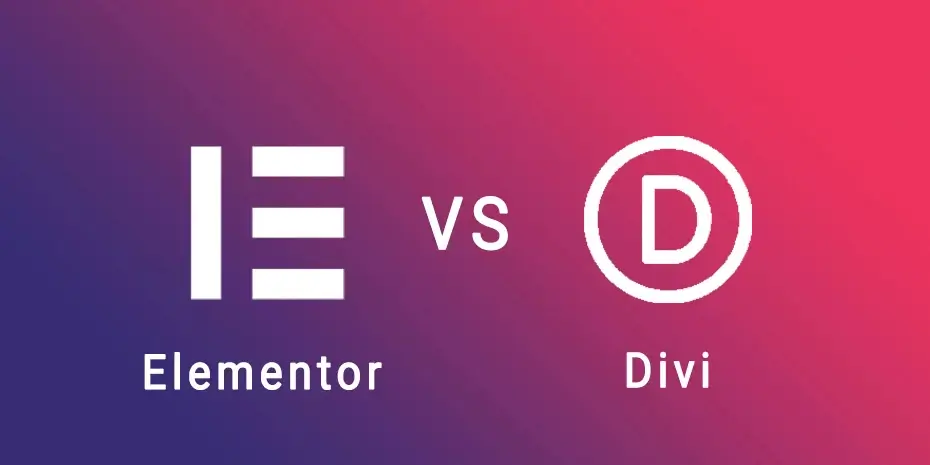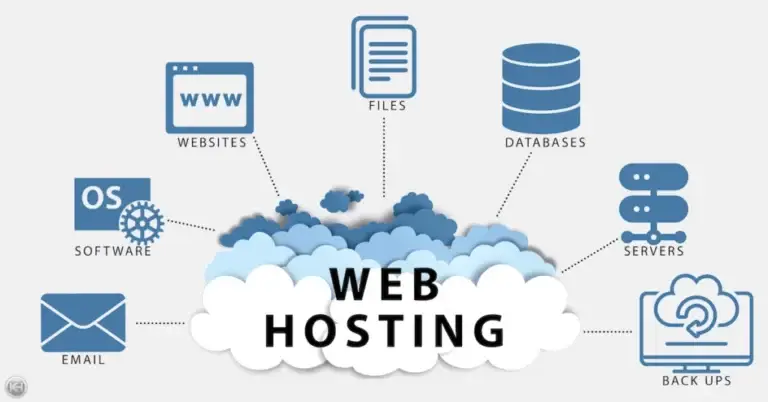Divi vs Elementor: Comparing Two Popular WordPress Page Builders

Divi and Elementor are two of the most popular page builders for WordPress websites. Both of these platforms have a lot of features and tools that make it easy to create custom pages and designs without any coding skills. In this article, we will compare Divi and Elementor to help you decide which one is the best fit for your website.
Divi is a page builder created by Elegant Themes, a popular WordPress theme developer. It is known for its drag-and-drop interface and a wide range of pre-built templates that can be customized to fit your needs. On the other hand, Elementor is a newer page builder that has quickly gained popularity due to its ease of use and powerful features. It offers a similar drag-and-drop interface and a large library of pre-built templates and widgets.
While both Divi and Elementor have a lot of similarities, there are some key differences between the two platforms. In the following paragraphs, we will explore these differences in more detail to help you make an informed decision about which page builder to choose for your website.
Overview of Divi and Elementor
Divi and Elementor are two popular page builders that offer an intuitive drag-and-drop interface for creating custom WordPress websites. Both tools come with a range of pre-designed templates, modules, and widgets that can be used to build pages and posts quickly and easily.
Divi is developed by Elegant Themes and has been around since 2013. It comes with a powerful theme builder that allows users to create custom headers, footers, and other global elements. Divi also offers a range of advanced design settings, including custom CSS, hover effects, and animation options.
Elementor, on the other hand, was launched in 2016 and has quickly become one of the most popular page builders in the WordPress community. It comes with a wide range of pre-designed templates, blocks, and widgets that can be used to create complex layouts. Elementor also offers a range of advanced features, including custom CSS, global widgets, and dynamic content options.
Both Divi and Elementor offer a range of advanced features that can help users create professional-looking websites quickly and easily. However, there are some key differences between the two tools that may make one more suitable for certain users than the other.
For example, Divi offers a more advanced theme builder and a wider range of design options, which may make it a better choice for users who want more control over the look and feel of their website. On the other hand, Elementor offers a wider range of pre-designed templates and widgets, which may make it a better choice for users who want to get up and running quickly without spending too much time on design.
Overall, both Divi and Elementor are powerful page builders that offer a range of advanced features and customization options. The choice between the two will ultimately depend on the specific needs and preferences of the user.
Ease of Use
User Interface Comparison
When it comes to user interface, both Divi and Elementor have a drag-and-drop interface that is easy to use. Divi has a more traditional interface with a sidebar on the left and a main editing area on the right. Elementor, on the other hand, has a more modern interface with a panel on the left that slides out when needed.
Divi’s interface can be overwhelming for beginners since it has many options and settings. Elementor’s interface, on the other hand, is more streamlined and easier to navigate. However, both interfaces are customizable, so users can adjust them to their liking.
Learning Curve
The learning curve for both Divi and Elementor is relatively easy. Both builders have extensive documentation and tutorials available online. Divi also has a built-in tutorial system that guides users through the process of building a website.
Elementor has a slightly steeper learning curve than Divi since it has more advanced features and settings. However, once users become familiar with Elementor, they can create more complex designs than with Divi.
Overall, both Divi and Elementor are easy to use, but Elementor may require a bit more time to learn due to its advanced features.
Design Capabilities
When it comes to design capabilities, both Divi and Elementor offer a wide range of features to help users create visually appealing websites. Let’s take a closer look at what each platform has to offer.
Theme Builder Features
Divi allows users to create custom headers, footers, and other theme elements using the Theme Builder feature. This feature provides users with a drag-and-drop interface that makes it easy to customize their website’s design. Additionally, Divi’s Theme Builder feature is compatible with WooCommerce, allowing users to create custom product pages and category pages.
Elementor also offers a Theme Builder feature that provides users with the ability to create custom headers, footers, and other theme elements. However, unlike Divi, Elementor’s Theme Builder feature is not compatible with WooCommerce.
Pre-designed Templates and Blocks
Both Divi and Elementor offer pre-designed templates and blocks to help users create their website’s design. Divi provides users with access to over 800 pre-designed templates, while Elementor offers over 300 pre-designed templates.
In addition to pre-designed templates, both platforms offer pre-designed blocks that users can use to create their website’s design. Divi offers over 100 pre-designed blocks, while Elementor offers over 150 pre-designed blocks.
Overall, both Divi and Elementor offer a wide range of design capabilities to help users create visually appealing websites. While Divi offers more pre-designed templates and blocks, Elementor’s Theme Builder feature is easier to use.
Customization and Flexibility
When it comes to customization and flexibility, both Divi and Elementor offer a wide range of options to help users create unique and personalized websites.
Module Variety
One of the key features that sets Divi apart from Elementor is its extensive module library. Divi offers a vast array of modules, including everything from basic text and image modules to more complex modules like pricing tables, contact forms, and countdown timers. This variety of modules allows users to create highly customized and visually stunning websites.
Elementor also offers a good range of modules, but it falls short when compared to Divi. However, Elementor makes up for this with its third-party add-ons, which can be used to extend the functionality of the builder.
Custom CSS Options
Both Divi and Elementor offer custom CSS options, allowing users to further customize their website’s design. However, Divi offers a more user-friendly interface for adding custom CSS. Divi’s built-in CSS editor allows users to easily add their own CSS code, and also offers a live preview of the changes.
Elementor’s custom CSS options are more limited, and require users to add their own CSS code manually. While this may be more difficult for beginners, it does offer more flexibility for advanced users who want more control over their website’s design.
Overall, both Divi and Elementor offer a high level of customization and flexibility. Divi’s extensive module library and user-friendly CSS editor make it a great choice for beginners and advanced users alike. Elementor’s third-party add-ons and customizable CSS options make it a good choice for users who want more control over their website’s design.
Performance and Speed
Loading Times
When it comes to speed and performance, both Divi and Elementor have their strengths and weaknesses. Divi has a reputation for being slower than Elementor, but this is not always the case. The loading times of a website built with Divi or Elementor can vary depending on a number of factors, such as the number of plugins installed, the size of the website, and the hosting provider.
One thing to note is that Divi has a built-in caching system that can help improve the loading times of a website. This feature can be especially useful for websites with a lot of traffic. Elementor, on the other hand, does not have a built-in caching system, but there are many caching plugins available that can be used to improve the loading times of a website.
Impact on SEO
The speed of a website can have a significant impact on its search engine rankings. Google has stated that website speed is a ranking factor, and slower websites may be penalized in search results. Both Divi and Elementor have features that can help improve the speed of a website, but it is important to note that website speed is not solely determined by the website builder.
Factors such as hosting, image optimization, and the number of plugins installed can all affect the speed of a website. It is important to take a holistic approach to website optimization in order to achieve the best results. Overall, both Divi and Elementor can be used to create fast and optimized websites, but it is important to pay attention to all aspects of website optimization in order to achieve the best results.
Pricing and Value for Money
Subscription Plans
Both Divi and Elementor offer subscription plans with varying features and prices. Divi’s pricing starts at $89 per year for yearly access to all of their products, while Elementor’s pricing starts at $49 per year for access to their pro features.
Divi’s pricing includes access to all of their themes and plugins, as well as their visual page builder. They also offer a lifetime access option for a one-time fee of $249. On the other hand, Elementor’s pricing includes access to their visual page builder and a variety of pro features, such as advanced widgets and theme builder. They also offer a lifetime access option for a one-time fee of $999.
Cost-Efficiency
When it comes to cost-efficiency, both Divi and Elementor offer great value for money. Divi’s yearly subscription plan provides access to all of their products, which can be a great option for those who need a variety of themes and plugins. However, their lifetime access option may be a better choice for those who plan on using their products for a long time.
Elementor’s pricing may be more affordable for those who only need access to their visual page builder and a few pro features. Their lifetime access option may not be as cost-effective as Divi’s, but it can still be a great investment for those who plan on using their products for a long time.
Overall, both Divi and Elementor offer competitive pricing and great value for money. It ultimately depends on the specific needs and preferences of the user when deciding which option to choose.
Support and Community
When it comes to choosing a website builder, support and community are crucial factors to consider. Both Divi and Elementor have a variety of resources available to help users with any issues they may encounter.
Documentation and Help Resources
One of the strengths of Divi is its extensive documentation. Divi’s documentation includes detailed tutorials, videos, and articles that cover every aspect of the builder. Users can also access Divi’s knowledge base, community forum, and email support for additional help.
Elementor also offers comprehensive documentation, including a knowledge base and video tutorials. In addition, Elementor’s support team is available via email and live chat for users who need further assistance.
Community Engagement
Both Divi and Elementor have active and engaged communities. Divi users can connect with other users and get help on the Elegant Themes community forum, which has over 1.5 million posts. Divi also has a Facebook group with over 100,000 members.
Elementor has a similar community setup, with a Facebook group of over 200,000 members and a community forum where users can ask for help and share tips and tricks.
Overall, both Divi and Elementor have robust support and community resources available to users. Whether you prefer to access documentation or engage with a community, both builders have options to suit your needs.
Integration and Compatibility
Third-party Plugins
Both Divi and Elementor offer compatibility with a wide range of third-party plugins. However, Divi has a slight edge in this regard, as it has been around for longer and has had more time to establish partnerships and integrations with various plugins. Divi also has its own set of plugins and modules that can be used to enhance its functionality.
Elementor, on the other hand, has a more streamlined approach to third-party plugins. It offers a limited number of integrations but ensures that they work seamlessly with the page builder. This approach helps to maintain the stability and performance of the website.
Compatibility with WordPress Themes
Both Divi and Elementor are compatible with most WordPress themes. However, Divi has an advantage here as well, as it is a complete theme and page builder package in one. This means that it has been designed to work seamlessly with itself, ensuring that there are no compatibility issues.
Elementor, on the other hand, is a standalone page builder plugin that can be used with any WordPress theme. While this provides more flexibility, it can also lead to compatibility issues with certain themes.
Overall, both Divi and Elementor offer excellent integration and compatibility with third-party plugins and WordPress themes. However, depending on your specific needs and preferences, one may be a better fit for your website than the other.
Conclusion
In conclusion, both Divi and Elementor are powerful page builders that offer a wide range of features and functionality. Each has its own strengths and weaknesses, and the choice between them ultimately depends on the specific needs and preferences of the user.
Divi is known for its intuitive interface and ease of use, making it a great choice for beginners and those who prefer a more visual approach to building websites. It also offers a vast library of pre-designed templates and modules, which can save time and effort in the design process.
On the other hand, Elementor is known for its flexibility and customization options, making it a popular choice for more experienced users and those who want more control over their designs. It also offers a powerful theme builder, which allows users to create custom headers, footers, and other elements.
Both page builders have strong communities and support systems, with plenty of resources available for users to learn and troubleshoot. Overall, it’s clear that both Divi and Elementor have a lot to offer, and the choice between them ultimately depends on the specific needs and preferences of the user.






